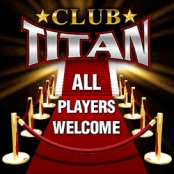Note taking strategy
Why is it important to take notes about your opponents? And why it is equally important to take good notes?
Because the way to beat online poker is to know your opponents, and there is hardly a better way to do that than to take notes. So you have a record of how they play that you can use against them later. But you need to have a useful record, as notes must be short. So here is a list of important elements to include into your notes.
AKs: this is the ultimate drawing hand preflop, so how it is played tells a lot; it is normally raised pre flop, and most players c-bet if they hit the flop or not; some people will call for all their chips if they hit a king or ace at the flop; very few players with c-bet the turn if they missed; also most players will fold to a raise if they missed, but some will call.
calling raises pre flop: if a player calls raises with weak hands like A-rag or worse, this is something noteworthy and you want to remember that.
calling raises and leading: this is not a common play; it can be done either with strong hands such as a set, or with much weaker hands such as overpair; either way if his hand is known with a showdown, this is very revealing.
flush chasers: some players seem to have a love story with flush draws; some of them play any two suited cards; you can spot them if you see cards such as T6s at a showdown; you want to make big bets both at the flop and turn against these players anytime there is a flush draw on the board; never pay them off if the flush hits, as the chance of a bluff is low.
any ace in any position: this is symptomatic of a bad player; it is useful to note that, as this means that (1) he will often have the weaker kicker, (2) he will play similarly weak hands.
limp reraise: some players play their monster pairs fast (as this is the way it should be), some like to trap, starting with a limp reraise; if a player limp-reraises, you want to see his hole cards; if this is rockets or cowboys, you know to fold your lower pairs; if this is done with weaker hands, watch out and wait for an opportunity to catch him.
raising hands: study and note the pre flop raising range of your opponents; from the rock to the maniac, each range is very telling about the players' tendency.
By focusing on these traits, and maybe a few more of your own that you can add, you can paint a good picture of each player you ever come across. So when you meet him again, you will have good intelligence about his style. This is different (complementary) from the stats you get from a HUD.
The point is that you want to become proficient in noting these traits that stand out, and not any random event that may not be too significant. Good game at the tables!








